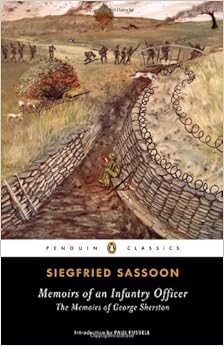This is the week of the final read-through, revisions, fact-checking, etc. of The American Slave Coast: A History of the Slave-Breeding Industry. This is adding to the current seasonal dissonance created first by the hottest weather of the entire summer, because, while this week is the start of everything new for so many as classes resume here in NYC in every level from pre-K to university, we are finishing a multi-year project. Or, at least, finishing this aspect of the project -- we're working on a presentation of some of the material complete with musicians, singers and other readers ....
Yesterday was the first real scorcher of this year, with temps in the high 90's as well as very high humidity. The copy shop to which I took the thumb drive to print out, yet again, the first chapters of TASC, had a line out into the street of anxious NYU kids, purchasing the spiral bound class packets that their professors had put together and the copy center had xeroxed and assembled, to be paid for with NYU's own cash card, which each student presumably is issued (NYU has its own currency, i.e. on that card).
I was so glad to not be a student, teaching or, worst of all -- a freshman!
It was very hot and stuffy in that little Asian-owned copy shop, the only one left in the neighborhood, staffed by brilliant young Asian girls -- who, by now, must as sick of seeing me come in with that thumb drive to have these pages once again printed out, as I am about doing it. It will be interesting to see, when we add up all the expenses for doing this book, how much we've spent on copying the drafts over the years. The first year, of course, we didn't spend any money ourselves, since we could copy at the Center in C'town.
This was in every way a very expensive book to write,* even if we don't add in the cost of the extensive travel research we did, including going to England. Still, though some of the travel costs were off-set by paying gigs, this was no small sum. There is also the payment for permission to use certain illustrations -- as well as having again to re-purchase Photo Shop (though now Photo Shop no longer sells the program at all -- it only rents) to process our own photos and to restore the very poor quality of period newspaper advertisements and other illustrations.
Just the cost of living while doing this book, which has increased every few months -- well, that's why it's taken so long. There wasn't much time to just work on the book. There was all the other work taken on to support ourselves in the meantime.
All the while, even now, we keep learning more history instrumental to the founding causes as to why the Southern United States, of all the New World economies that included slavery, was the only one to be a slave society, its economy based on womb enslaved into perpetuity. It wasn't an accident by any means.The intention and the perspective which allow such an inhumane blindness to humanity and civil rights was embedded in the founding fathers of the Southern states even before the first settlements of Virginia and Carolina were founded.
As back home in Britain, their thinking was formed so much by their handling of their Irish plantations, so they expanded this immediately to enslavement for profit (as opposed to labor per se) of the natives. The native tribes, of course, as the African peoples in Africa, were in perpetual rivalry and conflict with each other, so they were ready at all times to betray each other and sell each other to the Carolinians, who were assiduous and methodical in collecting slaves from the natives and selling to the Caribbean colonies.
As always, reading of the brutality of our nation's founding centuries, it's quite a dissonance to switch the heart of British civility, as with Siegfried Sassoon's first volume of changed-names memoir of growing up into and out of World War I. I began reading Memoirs of A Fox-Hunting Man, in the fall of 2011. I'd had the book on my shelves for years already. I was provoked finally into reading it by my experiences with the Eastern Shore fox hunting clubs. However, the sheer uselessness of the narrator, Sassoon's fictionalized Sherston-self, as a callow, blind and selfish boy and youth (his own characterization of his younger self), and his entire class-ridden culture on the threshold of WWI, provoked
impatience, while the tiny font and skinny trim of my Faber and Faber paperback, and my worsening vision, provoked annoyance -- so, I put it down. Over the years I would read a chapter every few months, but never making any real progress with the work. However, re-reading / listening to audio versions of Barbara Tuckman's The Proud Tower and The Guns of August, made the last half of the Memoir so interesting -- or maybe he was old enough now? children and adolescents aren't generally very interesting reading for me -- I finished it over the weekend.
As well, I kept thinking of Sassoon's Memoirs while this spring reading the history of Faulkner's and William Alexander Percy's Mississippi -- Mississippi with which I found myself so involved this year, historically, geographically, politically and culturally. Both Americans, Faulker and Percy, both aristos in their worlds as much as Sassoon was in his, had very different wars than Sassoon -- yet, for all three of them, their wars were shaped by their being embedded in their world's ruling classes, where everyone knows everyone or at least their uncles and aunts, and make the path clear for these nephews, cousins, school friends' sons. So there are many parallels. While Faulkner never wrote a memoir of his war, he did return to it constantly in his fiction and his (fictionalized) presentations of himself. Percy did as well, in his poetry, though not so much, and more so in his own memoir,
Lanterns on the Levee.
Picking up Memoirs of A Fox-Hunting Man last week, this time I found it fascinating and finished it in a few nights reading. The war looms every more largely in the second half, until finally, slowly, o so slowly, the real thing comes, and finally, Sassoon is taken by war, months after he joins up. He loses the men whom he loves, who may well have been his lovers. Whether or not they were physical lovers doesn't matter to us. In any case, the various loves in their various way, were were profound and complete. Finally, the war devours him, ending, for him at least, forever, the very England of the golden days of following the hounds in comaraderie of class, prosperity and family. The blinders of class and comfort through which Sherston had so happily seen nothing of the world but his own very narrow matters, have been shattered forever, with the shattering of his health and his youth.
The second volume in The Complete Memoirs of George Sherston is Memoirs of
An Infantry Officer, the third, when he's in hospital and treatment for shell shock,
is titled Sherston's Progress.
---------------------
* During the course of the years (beginning in September, 2010) working to create The American Slave Coast, el V and I both used up two computers. We're finishing it, both us on computer 3 -- though yes, both of us initially, began with machines that were unstable in the way computers warn you that necessary replacement looms.
Wednesday, September 3, 2014
Reading Wednesday: The American Slave Coast + Memoirs of A Fox-Hunting Man, Tuchman, Faulkner & Willam Alexander Percy
Subscribe to:
Post Comments (Atom)






No comments:
Post a Comment